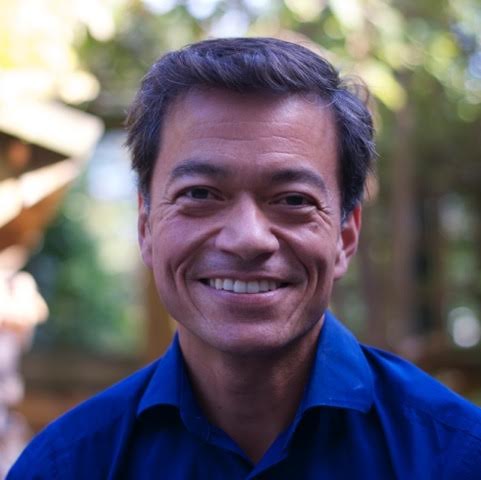‘The Calvinist drive to downplay success is pervasive’
 American psychologist and writer Doug Ota, 45, has lived in the Netherlands for 23 years. He loves running along the beach before dawn in winter and watching the sun come up, and would like to meet physicist Robbert Dijkgraaf.
American psychologist and writer Doug Ota, 45, has lived in the Netherlands for 23 years. He loves running along the beach before dawn in winter and watching the sun come up, and would like to meet physicist Robbert Dijkgraaf.
How did you end up in the Netherlands?
I followed my wife over for a year and that one year turned into 23! Some societies have been described as ‘centripetal’, drawing one inwards, or ‘centrifugal’, propelling you outwards. Dutch society, at least as I experienced it, turned out to be high centripetal. Holland is a pleasant place to live, with well-managed public spaces and a sane balance between work and family. It’s a great place to raise a family.
How do you describe yourself – an expat, lovepat, immigrant, international, etc?
Never heard the term ‘lovepat’ but glad to have a name for what I am!
How long do you plan to stay and why?
Indefinitely. I have three Dutch children and two dogs that bark Dutch. It’s become home. That sounds simple, but wasn’t. The tortuous path I took to feel at home in this country formed the basis for my niche in psychology, namely what moving does to people.
Do you speak Dutch and how did you learn?
Yes. I learned Dutch in my first year here by mimicking the 6 o’clock evening news on the radio, and then figuring out what I was saying afterwards.
What’s your favourite Dutch food?
Herring with onions – eaten overhead style. It’s delicious, it’s good for you, and it affords visitors an experience they’ll never forget.
Which three Dutch people would you like to meet and why?
If you could bring him back to life, I’d like to meet Harry Mulisch, my favorite Dutch writer; the world-famous physicist Robert Dijkgraaf, now at Princeton’s Institute of Advanced Study, so I can finally understand a thing or two about string theory; and Paskal Jakobson, the singer from my favourite Dutch band, Bløf.
How Dutch have you become?
I think it might be levelling off at exactly 50%! I appreciate and have internalised many Dutch values, but I think my ambitious and individualist tendencies have deep American roots. I work with some outstanding Dutch therapists, but I notice I’m often the first one there and the last to leave. It is very easy to still miss the coastline of Southern California where I grew up, the ocean and the waves, and the concept of open space further inland and in the rest of the US. In some ways, I miss the feeling I used to have of feeling confined in the Netherlands. It is remarkable how one can gradually get used to having less space.
What’s your top tourist tip?
Running on the beach between Scheveningen and Wassenaar before dawn in the winter, and watching the sun brighten one of the most pristine patches in these parts.
Tell us something surprising you’ve found out about the Netherlands.
Many people are far better at what they do than you would ever know if you judge by North American trappings. The Calvinist drive to downplay success is pervasive.
If you had just 24 hours left in the Netherlands, what would you do?
I’d take a run in the woods, order a pancake with bacon and a Duvel, see Bløf play live, and stay in a suite at the Amstel Hotel in Amsterdam.
Doug Ota’s book ‘Safe Passage – How Mobility Affects People and What International Schools Should Do About It’ is based on a programme he started during his years as a counsellor at the American School of The Hague.
Thank you for donating to DutchNews.nl.
We could not provide the Dutch News service, and keep it free of charge, without the generous support of our readers. Your donations allow us to report on issues you tell us matter, and provide you with a summary of the most important Dutch news each day.
Make a donation